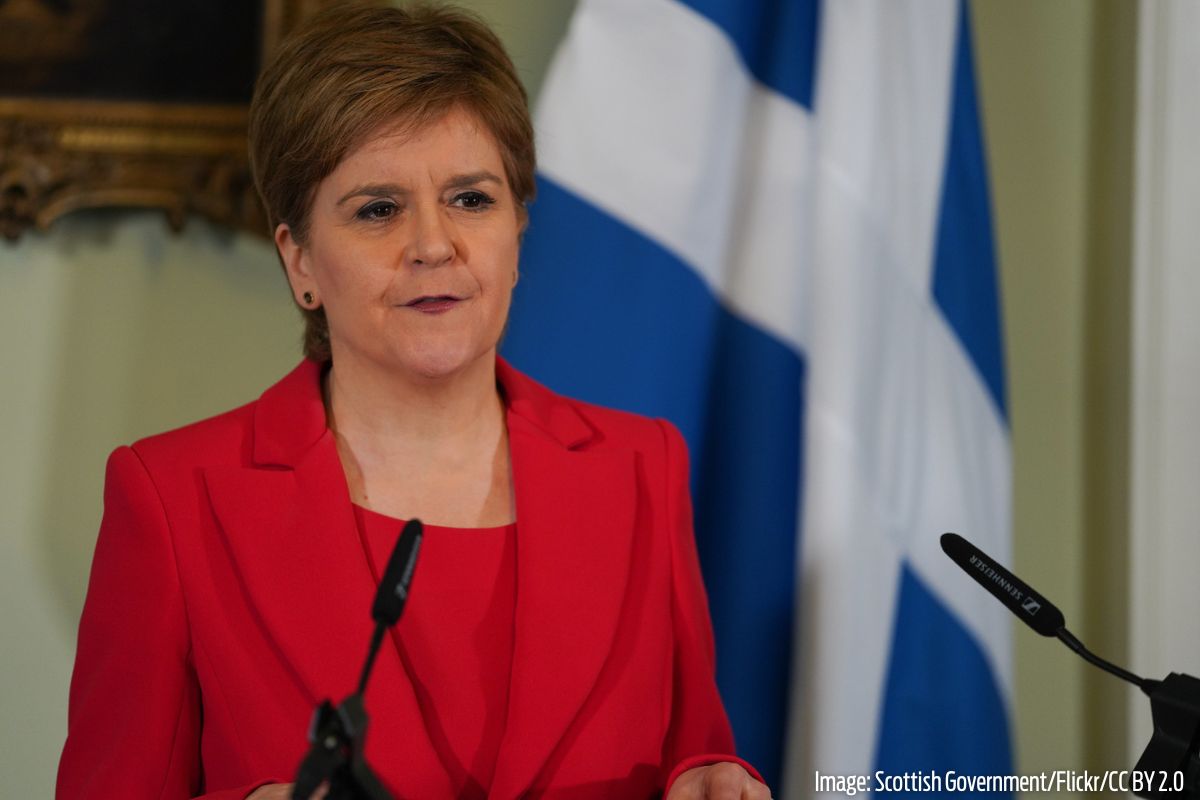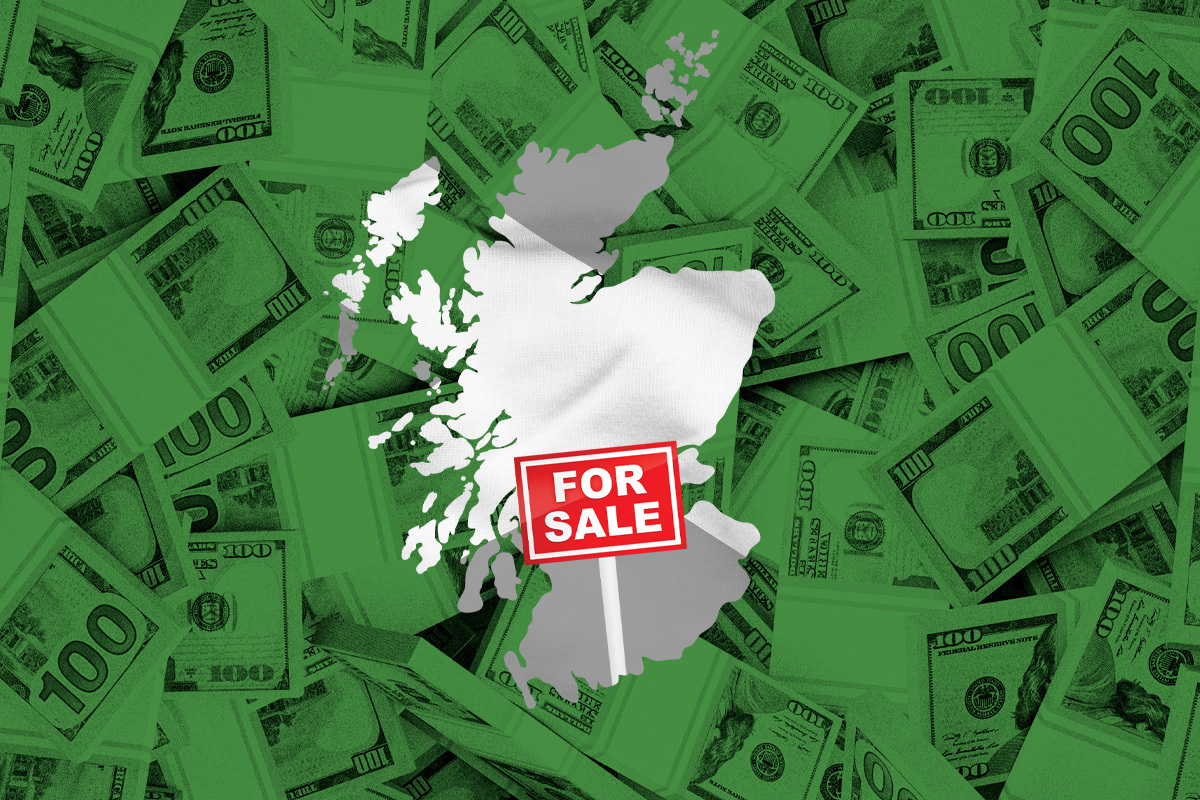The closure of British Steel at Scunthorpe, under the control of the Chinese Jingye Group, would have meant the end of the steel industry in the UK.
As such, establishment politicians deemed it a national security concern to keep the plant open, and keep it out of Chinese hands.
The Labour government’s rescue of British Steel has renewed calls for action over the endangered Grangemouth oil refinery in Scotland.
The SNP leaders have alleged that, if Grangemouth was based in England, it would have been nationalised already.
“If British Steel is to be nationalised to protect it, then so too should Grangemouth.”
First Minister @JohnSwinney has called on the UK Government to invest in Scotland’s green industrial future. pic.twitter.com/LG8ybZwBkg
— Scottish Government Finance and Economy (@scotgoveconomy) April 14, 2025
Similarly, First Minister John Swinney has also complained about Labour investing in green industry and data centres south of the border, while similar projects in Scotland have been cancelled. Even Scottish Labour MPs are imploring Downing Street to act.
The Grangemouth site is jointly controlled by Ineos, owned by English billionaire Jim Ratcliffe, and PetroChina. The UK’s oldest oil refinery, it has been systematically run down by the PetroIneos partnership.
Grangemouth’s closure will represent the end of the refining industry in Scotland, despite the presence of North Sea oil and gas. No such concerns about national security have been raised here, however!
Industrial decline
For decades now, the Scottish economy has been up for sale. Private, institutional investors from outside Scotland and further afield have been on a spending spree, acquiring Scottish businesses.
Mirroring the decline of British capitalism in general, Scotland has been transformed from a once-leading industrial nation to a weak and dependent economy, subject to imperialist domination.
The Stagecoach bus company, once controlled by SNP mega-donor Brian Souter, was sold in 2022 to a German owner.
First Bus, which is based in Aberdeen, has been batting away offers from US-based private equity.
The logistics company Menzies, whose logo can be seen all over British airports, was bought by a Kuwaiti investment group in 2023.
The trend goes back a long way. Flight comparison service Skyscanner was a Scottish company until 2016, when it was purchased by a Chinese firm.
Multinational monopolies
The biggest changes occurred in the wake of the financial crash of 2008, when Scottish banks such as Halifax and RBS were nearly crushed, and moved their headquarters to London.
Even famously Scottish industries – such as whisky – are largely controlled by multinational monopolies. Much is in the hands of the giant Diageo, headquartered in London, with its largest shareholders being private equity firms such as BlackRock and Vanguard.
Though foreign ownership only accounts for 3 percent of Scottish firms, it is the source of 34 percent of employment, and contributes up to a third of Scottish GDP.
Almost half of manufacturing in Scotland is foreign-owned. The biggest owner is not China, however, but the US and its satellites.
Open for business
It is generally considered one of the great successes of devolution that the Scottish government has been able to attract so much investment to Scotland. Outside of London, Scotland receives the second highest foreign direct investment into the UK.
Attracting this investment has long been the priority of the SNP and Scottish government.

Alex Salmond established trade delegations in many countries, and Nicola Sturgeon heavily promoted so-called ‘green’ freeport schemes – the leasing of natural resources for energy production. This policy has continued under current FM Swinney.
The Scottish government’s own figures show, however, that in the period 1998-2021 there has been a continuous net outflow of income from Scotland, adding up to 5.6 percent of GDP in 2021. That is, foreign investors are getting out more than they put in.
Some might argue that foreign buyouts can rescue firms facing closure and thus save jobs. But it is in the nature of the capitalists – whether they be based in Edinburgh or Shanghai – to act like vultures, cutting operational costs to squeeze as much as possible out of their investments.
Global investors also exercise pressure on governments, threatening to withdraw if they cannot secure favourable industrial relations or beneficial tax regimes.
Break with imperialism
The local bourgeois and its ruling clique – the SNP leaders – have become wedded to the interests of international capital. Far from building a strong, independent, or ‘sovereign’ economy, the SNP’s rule has tied Scotland more closely to US and EU imperialism.
Hence we see John Swinney standing alongside Keir Starmer and sucking up to Trump: cowering before US tariffs, and calling for a hike in military spending.
As a weak and dependent capitalist class, the Scottish bourgeois are reaching new lows in selling-off Scotland. Any talk of ‘national interest’ or ‘sovereignty’ from their lips is a complete farce.
The only viable future for Scottish workers is to take the economy into our own hands – breaking with imperialism, and ruling the country without capitalists, as part of a worldwide socialist revolution.






